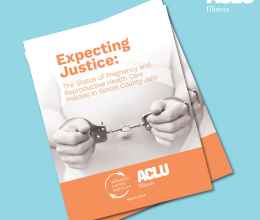By: Kate
From the outside, working in tech is glamorous. Offices are packed with amenities from free beer on tap to zanier things like slides and ball pits. There was a time that every job posting mentioned their ping-pong table and dog-friendly policies. Perks aren’t limited to the physical setting; things like unlimited time off and education reimbursement are commonplace. The tech industry portrays itself as a haven of flexibility, inclusivity, and job satisfaction. Something that is rarely considered, however, is how the industry treats new parents, and especially new mothers.
I have worked in tech for nearly a decade. I initially started as a website designer, but then when I discovered I had a knack for the more technical parts of the job, I jumped into development. One of the reasons I like this field is because it offers a very fruitful career path – it seems like everyone always needs a web developer, so there’s always work. I have never had to go searching for work before another recruiter has already contacted me about the next opportunity.
As you may know, working in tech means working in a very male-dominated field. Working in tech as a woman also means you get used to working harder to prove yourself, to be taken seriously, to not be seen as the token “girl on the team.” Every time you start a new job, it takes months of building trust with the men you are working with on the project. As a developer, it can be quite draining to start from scratch with every new team. But I am good at my work and I like doing it, so I have trained myself over the years to not let it get to me.
However, a recent decision in my life changed my perspective. A few years ago, I was job searching while newly engaged, knowing we would intend to have children right away. When new job offers came in, I hesitantly asked recruiters and hiring managers about their companies’ maternity policies. And whenever I asked, the recruiter would always pause, then say “I don’t know” or “I will have to get back to you.” This seemed like a totally unfamiliar question for them, and a frankly unwelcome one.
I found out that I was pregnant with my first child last year just as the COVID-19 global pandemic started. As a result of the pandemic, my current company decreased our salaries and increased our workloads, so I decided to explore new opportunities.
When I started interviewing, I asked a number of my friends and colleagues about how to navigate this process while pregnant. I talked to a few people close to me who have been hiring managers in their fields. I was disheartened to find that many of them thought it was important for me to disclose my pregnancy even though I was not legally obligated to, to establish trust with my prospective employer, despite the possibility it could put me at a disadvantage. But since I was aware that I was supposed to have legal rights against discrimination as a pregnant job seeker, I decided to be upfront, hoping that tech companies hiring would be true to the anti-discrimination policy they all list at the bottom of every job posting.
As I communicated with one recruiter from a Fortune 500 company, I told her the truth: that I was pregnant and maternity leave would be part of my near future. The recruiter did not respond directly, and I began moving through the interview process. It seemed like the process was going well, and I received an offer from the recruiter for a second-round technical interview. But when I again mentioned my upcoming need for maternity leave, I suddenly received a call from the recruiter telling me that she would now have to check with the company if it was ‘okay’ that I was pregnant.
And then soon after that, I received a voicemail saying that the timing just would not work out for the company to hire me, but I could try contacting them again after my pregnancy.
My heart dropped. After years of working hard and proving myself in this industry, it felt like I was being sent back to square one again as a woman. And worse, now a company actively did not want someone with my skills just because I was pregnant. I asked myself, what would the rest of my career look like as a mother in tech?
In fact, again and again that summer, company doors that seemed to be wide open suddenly closed right after I shared the news of my pregnancy. A start-up seemed very excited at the beginning of my interview process, but later after I informed them of my pregnancy, I had a blunt, cold interview with a male hiring manager filled with questions unrelated to my resume. It felt like a trap laid by somebody who was looking for reasons to say no. I soon after received a rejection feedback list that was completely unfair and out of line with my skillset.
All of these experiences made me feel really bad, like I was letting people down because of my pregnancy, or like I was some kind of enormous inconvenience. I felt confused, anxious, and sad. And I started thinking of all the other ways working in the tech field has taken its toll on me as a woman, from when I left a different fortune 500 company after experiencing retaliation for reporting my boss for sexual harassment, to when I worried about the implications of wearing my new engagement ring to interviews and meetings.
Thankfully things calmed down at my current company and I ended up staying on there, and taking maternity leave after I gave birth last fall. Navigating childcare after returning to work has undoubtedly been tricky, especially in the pandemic, but we’ve finally settled into a good routine.
Still, too many new mothers and fathers find out about their companies’ policies around parental leave much too late, if such policies exist at all. And even when leave is available, too many employees are judged, shamed, or discriminated against for taking advantage of it. It’s difficult for non-childbearing partners too. My husband only had a week off, but he would have loved to have spent more time with our new son in those early days, and it would have made recovering from the physical and mental aspects of childbirth easier for me to have had more of his time available.
As more and more companies work to change their policies and practices to promote inclusion and fairness, they should make it a priority to include working parents and other caregivers. If tech companies want to live up to their aspirations and have the biggest impact, they need to be welcoming to everyone that could work for them and contribute to their success. Welcoming pregnancy policies are essential, and something that should be top of mind for recruiters in interviews.
Furthermore, we need public policies that support working pregnant and parenting people, like paid family leave programs and laws ensuring that employers make reasonable accommodations for pregnancy and childbirth.
No person’s entire existence can be predicated around their day job. We need to treat being a working pregnant or parenting person as what it is – not an inconvenience to employers, but simply a fact of modern life.





